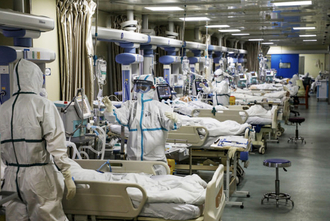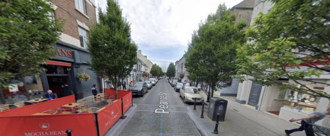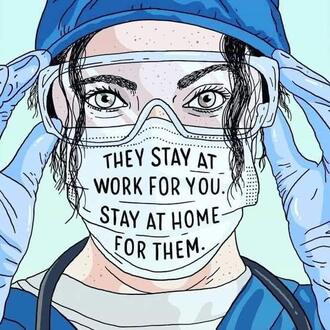- Featured
- Animal Rights
- Anti-racism
- Arts & Culture
- Children
- Climate
- Corporate accountability
- Crime
- Disability rights
- Economic
- Education
- Environment
- Food and Sustainable Production
- Gender Equality
- Governance and Transparency
- Health
- Housing
- LGBT Rights
- Mental health
- Northern Ireland
- Planning
- Privacy and Data Protection
- Rural Inequality
- Social Justice
- Trade
- Transport and Infrastructure
- Workers' Rights
- More
-
Save NHS DentistryNHS services will be impossible to provide under the new Coronavirus Regulations, and those already in poverty will be hit hardest. New regulations requiring dentists to vacate surgeries for one hour after carrying out ‘aerosol generating procedures’ such as drilling, fillings and root canals, will drastically reduce the number of patients they can see, and make it financially impossible for surgeries to offer treatment under the NHS. Those in poverty often delay treatment due to the cost of dental charges. Without a good NHS system their oral health, including diagnoses of serious conditions like mouth cancer is going to suffer and their general health will follow suit.7 of 100 SignaturesCreated by Nicola Browne
-
Distribute Masks for FreeAfter weeks of mixed messages from Government and Health Officials about the effectiveness of mask-wearing, there are now efforts to make up for lost time through regulation. It took the HSE until April 22 to introduce a mandatory policy for the wearing of masks. No official advice on face-coverings for the public was issued until May 13. As of this week, it is now a requirement on public transport and more recently in shops. It is not too late for everyone to buy-in to a new regime of mask-wearing, but we must re-focus the conversation on the accessibility of masks. The State's inadequate response in this crisis of public health, brings about a request from the public and a ask for our policymakers: we demand free distribution. The goal of mask-wearing is to save lives, not to further put them at risk. There are gaping holes in the plans announced which carry the risk of fuelling public tensions between those wearing them and those who may have a valid reason for not wearing one. On this basis, we are calling for the immediate ramping up and distribution of free masks for the entire population.2,162 of 3,000 SignaturesCreated by Unite Community

-
Free Car-Parking for Healthcare WorkersThe public transport system remains unreliable for staff who have no other means to get to work. For those of us who drive we are working extended hours to juggle ongoing childcare issues which have not been rectified by the recent reopening of some childcare facilities. We are and have been under enough pressure for the last 4 months. Free parking is a small mercy to grant us for our tireless efforts. Please reconsider this decision Dublin City Council. Image source: https://www.newstalk.com/news/over-e5m-taken-in-by-hse-in-car-parking-charges-last-year-1325831843 of 1,000 SignaturesCreated by Jen Sheehan
-
Save Waterford's Municipal Golf CourseThis is the only publicly owned Golf Course in the South East and is much used. A change of use would take from the public an amenity that is valuable for low cost both for the council to provide and players to use. If anything sports facilities should be further developed for users of all ages.855 of 1,000 SignaturesCreated by Una Dunphy
-
Call to Goverment to Stop US Travel to IrelandThe efforts made in Ireland since March 12th to protect the most vulnerable of our society, and our society as a whole, from the threat of COVID-19 which has cost over 1,700 lives in Ireland has cost our residents greatly. Many lost loved ones and were unable to grieve or hold funerals, many lost their businesses or jobs indefinitely or permanently, children have been unable to go to school or childcare, many have had their lives disrupted and we have just started to open the economy back up. To allow tourists from the most infected parts of the US to travel to Ireland at the start of reopening our economy (and arguably the most critical time in this Pandemic for the country) flies in the face of all of our healthcare workers, all frontline staff, anybody that has lost a loved one during this Pandemic (whether due to COVID-19 or not) and all workers and businesses who have sacrificed for the greater good to control the spread. Our Government has expressed their concerns over the economy and the need to reopen, but unlike many continental European countries we are allowing tourists from the United States to enter our country and multiple reports have been made of tourists arriving and not taking the "mandatory 14-day quarantine" seriously. These tourists are arriving from states with the highest COVID-19 cases in the US and from states which have new daily records of new cases as each day passes. "A second wave of Covid-19 would wipe out any chance of economic recovery in Ireland either for this year or next, the Organisation for Economic Co-operation and Development (OECD) has warned." - https://www.irishtimes.com/business/economy/second-covid-19-wave-would-wipe-out-economic-recovery-1.4275388 A growing number of tourists from the US have been arriving over the past 2 weeks and Irish COVID-19 cases have been on the rise, with the reproduction number back at 1.0. These tourists have been refused tourist experiences and entry to restaurants for clearly ignoring the 14-day quarantine/self-isolation requests made by the Government. In this article, our elected officials have been quoted as admitting that these regulations are not being enforced and need to be: https://www.irishtimes.com/news/health/disease-expert-says-jailing-tourists-who-breach-quarantine-would-send-clear-message-1.4302794 "... Luke O’Neill, Professor of Biochemistry at Trinity College in Dublin, said it was a “big mistake” that tourists from states such as Texas are being permitted entry into the country. (from article: https://www.joe.ie/fitness-health/immunologist-us-travel-ireland-70003) While Prof Sam McConkey at the Royal College of Surgeons in Ireland thinks that these tourists should simply be jailed for 3 months for breaking the quarantine rules (see article: https://www.irishtimes.com/news/health/disease-expert-says-jailing-tourists-who-breach-quarantine-would-send-clear-message-1.4302794) it's evident that the best way to stop the spread of COVID-19 to Ireland from the US would be to ban all non-essential travel to Ireland from all US destinations.425 of 500 SignaturesCreated by Amy Ní Chó
-
Strict Quarantine for arrivals from the USAWe are urgently calling on you, the government, to immediately strengthen the quarantine measures for arrivals from the USA. In recent days, we have seen and heard multiple testimonies from concerned citizens regarding tourists arriving to Ireland from the USA and flouting quarantine advice. With 1,746 Irish people dead with Covid-19 to date, this is unacceptable. We immediately need a strict 14 day quarantine imposed on any person arriving from the USA. Strict, mandatory quarantines on inbound travellers have been implemented in several other countries around the world experiencing this crisis, and importantly, they’ve been successful. It has been proven to save lives. We know where the threat of a second wave of COVID-19 is most likely to come from, offshore, as that is where most of the cases are. The USA is currently the epicentre of Covid-19 in the world. We all want to welcome people from the USA, but we have to be certain we safeguard our population, particularly our most vulnerable. This appeal is urgent. Experts like epidemiologist Dr. Sam Comiskey, are calling for a strengthening of quarantine measures and policing to ensure we don’t nullify any success our domestic lockdown measures have had. Healthcare workers and Irish citizens are alarmed at the lackadaisacal attitude of some tourists and some citizens returning to Ireland to the quarantine advice. This is a defining moment in our history and in the leadership of our country. After the sacrifices we’ve all made in recent months, with parents home-schooling their children, grandparents not able to see their children or grandchildren or anyone else, people unable to attend their loved ones' funerals, healthcare workers reaching walls of exhaustion and isolating themselves away from their families, business shutting their doors and people losing their incomes, with 1,746 Irish people dead, to date with Covid-19, we are urging you, the government, to do everything in your power to eradicate this virus and save lives.7 of 100 SignaturesCreated by Sinéad Stewart

-
Trial pedestrianisation of Pearse Street in Ballina for July and AugustBenefits include: — Allowing space for social distancing, giving shoppers and other visitors a higher level of safety. — Allowing for extra space for those who most need it and still need to get about. — Space for outdoor eating from cafes and pubs without cluttering footpaths. — More space for the already growing influx of shoppers and tourists. — The junction at the centre of town will likely flow better with traffic if it was just coming from two ways rather than the current three directions which causes congestion. — Only remove a relatively small number of parking spaces compared to the car parks on both sides of the street. — Have no effect on car parks at AIB Bank or Bank of Ireland or the taxi rank. Some people objecting to changes like this is normal around the world, but a small number of businesses and residents objecting to this should not be allowed to stall this as happens with so much else in Ballina, especially given the strong public health reasoning. When we’re over the current crisis and people don’t like it, it can be removed then. It is only around 140 metres of the street and the street is lined with car parks on both sides with access via laneways. More parking spaces for people who have disabilities or mobility issues can be provided at both ends of the street and near the pedestrian entrances in the car parks. Shot stay spaces can also be provided. The taxi rank outside AIB would not be changed. As other towns have shown, this can be done quickly and cheaply with a mix of planters and bollards. It does not require much funding but if the council requires funding, there is national funding available for post-lockdown mobility measures like this. This was not tried before (it was Tone Street) and for a trial to be meaningful it needs to be trialled for a month or two. In the first week or two traffic might increases as people get used to it, but that’s not a reason to pull the plug.146 of 200 SignaturesCreated by Cian Ginty

-
Improving Nurses PayAfter watching the RTÉ investigates special and watching the nursing staff of St. James’ Hospital fight COVID on a daily basis, it was harrowing to see just what our nursing staff went through and continue to do so. These nurses watched countless people die and treated them with the upmost respect on their passing even acting as their family members due to the COVID restrictions. Our nursing staff have gone above and beyond across the country to save lives. And as the restrictions are lifted, they continue to fight COVID in our hospitals. This is not over for them and they fear a second wave. Our responsibility as the public to say a small thank you to these amazing nurses is to lobby ever single TD in this country until we increase their wages. Enough is enough. These amazing women and men deserve so much more. This is the least we could do for them. Below is a sample email to send to your local TD17 of 100 SignaturesCreated by Emma Quirke
-
Reopen gates in Phoenix ParkUpdate: OPW have released this. All gates bar Knockmaroon open from Friday July 10th. Knockmaroon will open when works completed. Truly hope lessons can be learned from this and all stakeholders are considered in future planning. Thank you all for your support!! https://m.facebook.com/story.php?story_fbid=3500180506661143&id=132971523382075&anchor_composer=false Phoenix Park is a worldclass amenity to the people who live nearby, on day trips, and tourists alike. The decision to only have 2 gates open to vehicular traffic is seriously restricting access to the park. Traffic volumes are increasing now that we are coming out of lockdown. Congestion in the surrounding areas is already a huge issue. This will only increase with these access routes cut off without an alternative solution. It can now take up to an hour to get from one end of the park to the other ; particularly at weekends with increased demand for the Zoo, Farmleigh and the Visitor Centre. Engine emissions from cars sitting on Chesterfield Avenue must surely be offsetting any potential environmental gain. Parts of the Park will become no go areas due to their isolation. There are no plans for an increased OPW presence with the gate closures. This decision seems to have been rushed through with little forward thinking and engagement with local communities. Give the park back to the people and then work on alternatives to reduce car traffic.1,652 of 2,000 SignaturesCreated by Alison Reynolds
-
Outdoor Education as a COVID solutionAs children return to school in Ireland, the risk of a second wave of COVID will grow. Most schooling means spending long hours, indoors, in close contact but it doesn't have to be that way. A way to minimise this risk, whilst benefiting from nature, is to teach outdoors as much as possible. This has already been done in previous pandemics and is now being tried in Denmark, USA and UK amongst other countries m as part of the covid response. There are many co-benefits to child well-being in spending more time outside, such as nurturing a closer connection to nature and fighting obesity. I am calling on the government to consider this as part of the return to school and to provide resources to schools to build suitable outdoor class shelters. See: https://childhoodbynature.com/the-case-for-learning-outside/56 of 100 SignaturesCreated by Lorna Tevnan
-
Stronger Regulations for AirbnbAirbnb is a a major factor on homelessness. As Airbnb is so unregulated many landlords are evicting tenants to turn their premises into nightly lets. This is causing the massive reduction of properties available in the private rental market. Therefore pushing up the cost of rents. The People of Ireland are living in hotels and B&Bs while the tourists are living in the houses. Until this sector is regulated and the rules enforced this will continue to happen. Covid 19 has highlighted this, we saw 1000s and 1000s of houses lying empty because travel restrictions. I am urging the Government to do someting about this once and for all.17 of 100 SignaturesCreated by Caroline Neill

-
Wear a mask to protect old peopleThe European Centre for Disease Prevention and Control (ECDC) recently reviewed the latest scientific evidence on the use of face masks in the community. It reported that the use of face masks by people who are asymptomatic may help reduce the spread of infection in the community. This is done by minimising the excretion of respiratory droplets from infected individuals, who may not even know they are infected and before they develop symptoms.9 of 100 SignaturesCreated by Grandpal Ireland



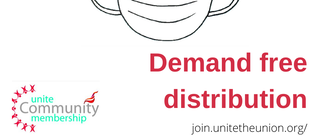
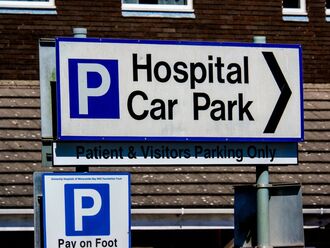
.png)

